
Content is considered to be the foundation of a successful SEO strategy.
What exactly does that mean?
Why is content so important for search engine optimization?
First Things First: What’s “Content Marketing?”
Content marketing is creating and distributing valuable, relevant and consistent content in order to drive brand awareness, traffic and sales.
Please note if your content isn’t valuable, relevant and consistent, it’s not content marketing. If it’s not driving profitable customer action, it’s not marketing.
Gone are the days when you could have just used your target keyword a certain number a times across your document to convince the algorithm that your content is relevant to that search query.
Google has come a long way since then.
Its innovative algorithm is implementing artificial intelligence to teach the algorithm to think like a human being. It is using a variety of signals to evaluate how useful any search result turned out to be.
There’s no faking true value any more.
Authentic value always comes first.
Why Content is So Important for SEO?
Content is traditionally fundamental to SEO because Google needs words and text to understand relevancy.
Even decades after Google algorithm was born and now that Google can now read visual and video content, Google still admits relying on text for the most part:

With that in mind, how exactly does Google understand quality and relevancy, when it comes to textual content?
What is High Quality Content? Truly Useful Content
Number one, just be awesome at what you do. Google is getting better and better at being able to differentiate what people are really asking for.
Be very clear about who you are and what you do. It’s not guaranteed that you won’t run into those problems, but Google is getting better at figuring out the intent of a query and really finding what the best result should be.
Authenticity and transparency go a long way. It is not about faking relevance and quality signals. It’s about really solving the problems behind search queries.
As a result, it’s getting harder for affiliates and resellers to suck traffic away from brands in branded search queries, without the brand having to do much SEO improvement on their part.
Content and Link Building
There’s another distinct benefit of creating content for your business site: Content attracts links, and without links, there are no rankings.
Content-driven link building is the only safe link building out there: You generate links via creating linkable content. There are multiple formats and tactics behind creating linkable content, and you will need to experiment with all of them to find what works in your niche:
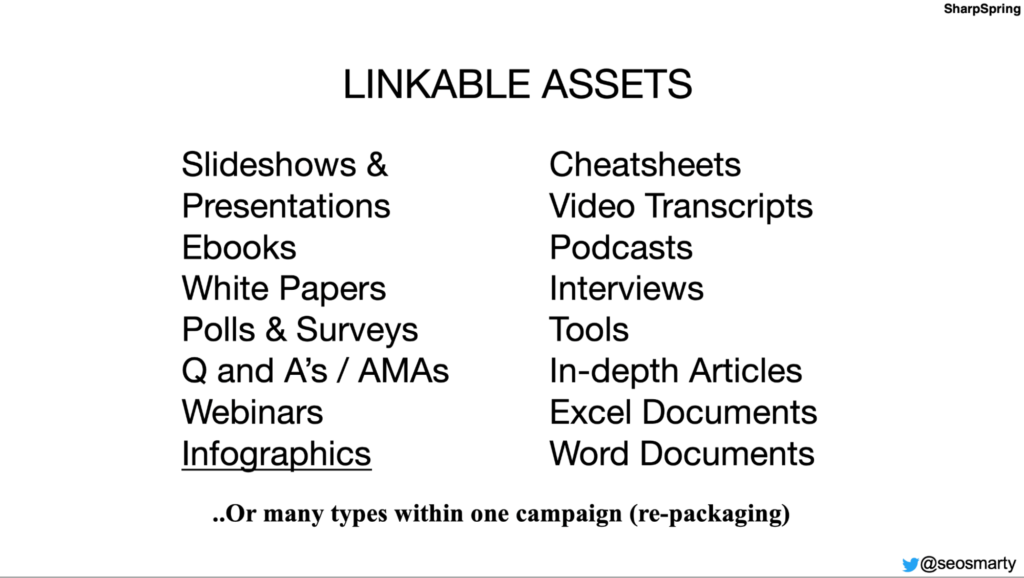
To help your content drive links, reach out to bloggers and journalists in your niche and invite them to read your content and link to it. This is a slightly overused but still perfectly legit and effective way to get backlinks. Use Hunter to easily find emails of bloggers’ and journalists’ you think would be interested in your content.
Their feature is also very useful for cleaning your existing email lists and getting more out of your outreach methods.
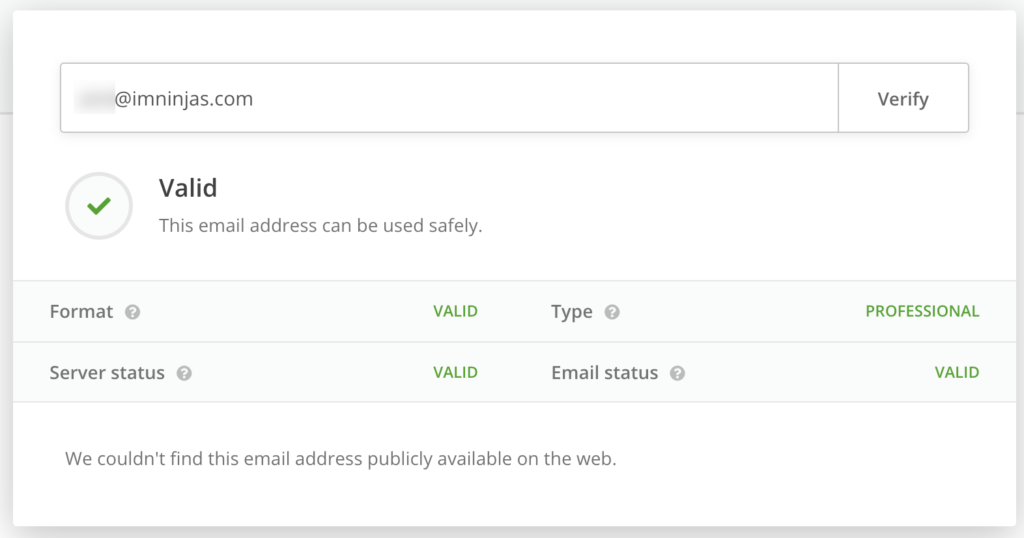
Content and SEO: They Only Win Together
So it is quite clear that SEO isn’t really possible without content.
Can content exist without SEO?
It actually can.
But unless you keep SEO in mind when creating content, you rely on a sheer chance to have it ever discovered or found.
When it comes to business and marketing, relying on luck is never a good strategy. You need data and planning to increase your odds of success, and that’s where SEO comes in handy.
It’s becoming much more important for content creators to understand how content is published and discovered on the Internet. In a way, optimizing your content for search is getting easier to understand and easier to integrate into the whole content creation process.
Why would you create content and put it out there and have someone else come in and optimize it later? If you’re doing the content creation and putting it in a CMS or working with a developer to get it published, well why not integrate that stuff as you’re doing that along the way?
It is especially important for small companies, non-profits, and even government and higher education – those people who don’t have huge SEO resources.
If content professionals can learn a small amount of basic SEO, they’ll get 90% of the way there. All of the other super heavy keyword analysis, back-linking profiles and pattern analysis, that’s what you do when you’ve already gotten 90% there.
Content + SEO Tools
There are quite a few SEO tools that can empower your content creation process and let your team make more informed marketing decisions. My favorites are:
1. Ahrefs
Ahrefs is a keyword research tool that relies on Google search data. It extends your search query and lets you discover what your competitors are ranking for. It is a great content ideation and optimization tool allowing you to see which problems and questions your target audience is struggling with:
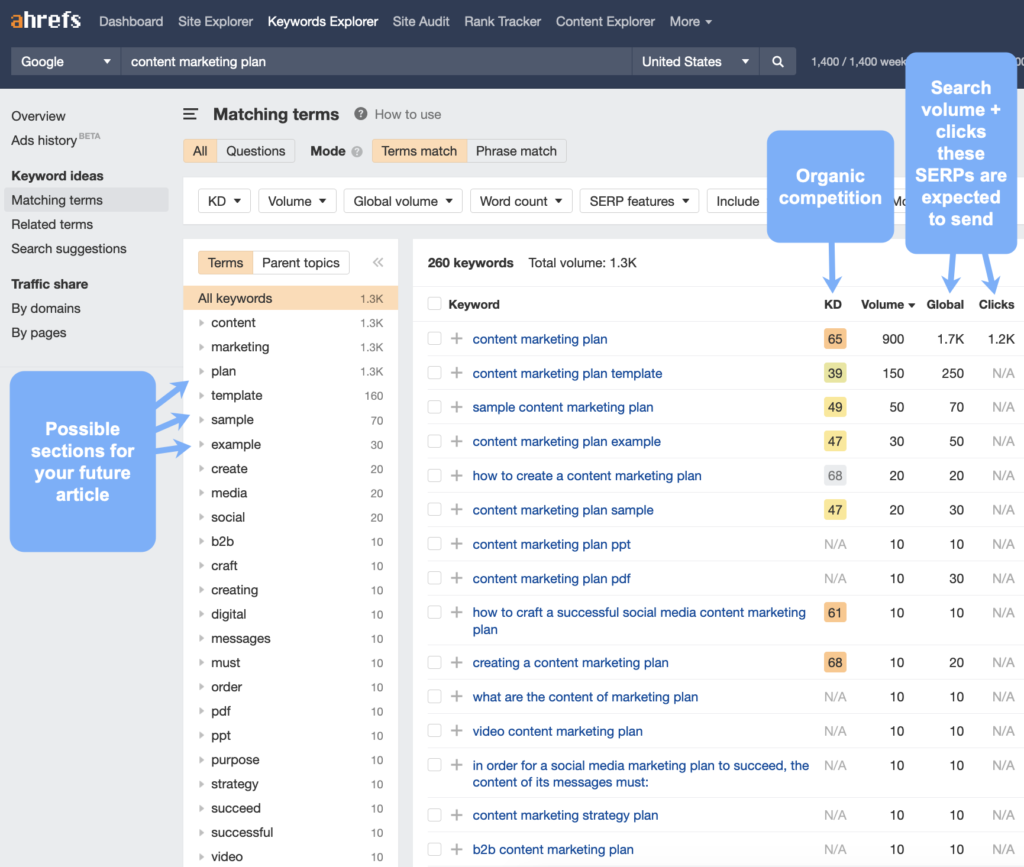
2. Text Optimizer
Text Optimizer is a semantic research tool that takes your target queries and imports search snippets that come for it. Then it analyzes the text extract related concepts and entities letting you discover more topics and angles to cover:
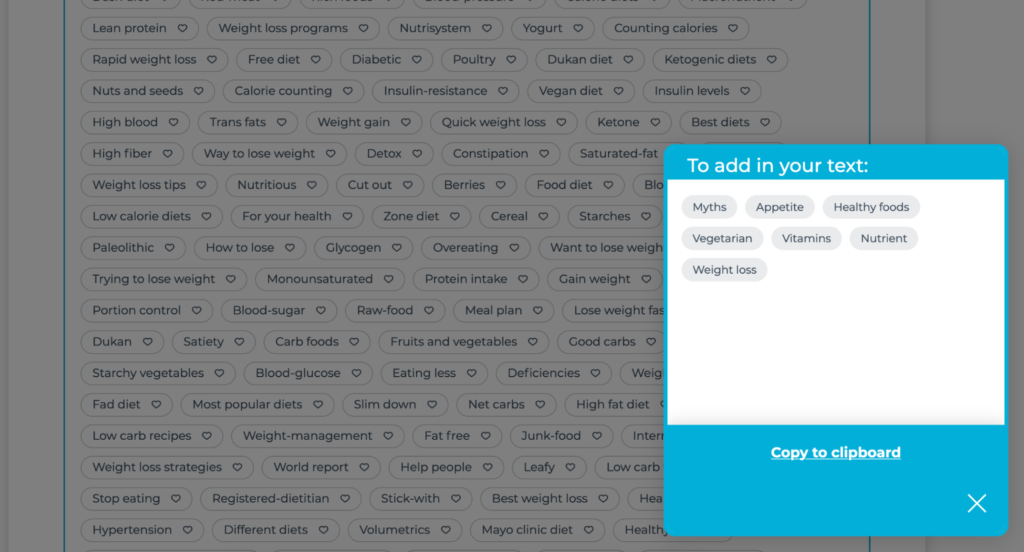
Text Optimizer is a great tool to create lead magnets because it drives long-form in-depth content creation that tackles multiple angles within your chosen topic.
3. Google Analytics
Google Analytics allows you to identify the most successful content to help you use the data to better understand your audience and focus on what works.
4. Buzzsumo
Buzzsumo includes lots of tools including content analysis and backlink research. The whole toolset focuses on content signals and authorship making it a great fit for content creators and media publishers.
5. Rank Tracker
With Rank Tracker, you can generate a ton of keyword ideas for your content, create keyword groups for landing pages, and set up rank monitoring for your and your competitors’ websites.
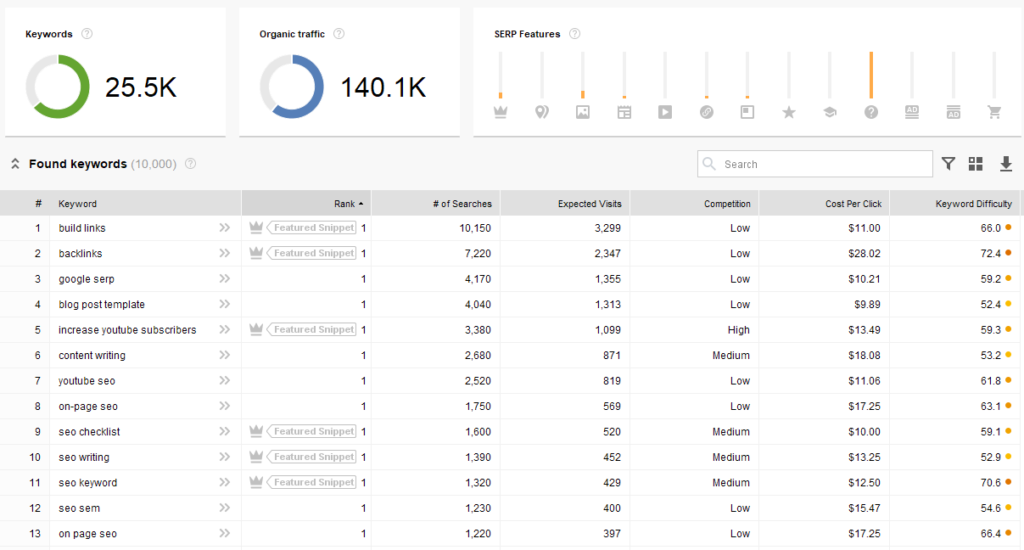
Bottom Line: Content strategists must not be afraid of SEO
A lot of people have asked me where to get started with this and I’ve been referring them to Moz’s Beginner’s Guide to SEO. It’s basic, it’s written for an audience that doesn’t know anything about SEO, and it gets you almost all the way to where you need to be.
But fundamentally, it is all about collaboration: Your content marketing should rely on SEO for ideation strategy and data but it also needs to be unique and creative.
Content and SEO teams are both only as strong as their weakest links. The things you publish need to be found organically to break through today’s cacophony of content. Search, content, social, technology, UX and analytics all have to be working in perfect harmony, and so does your team.
If there is organization silos, your content will suffer. If you have inefficient workflows, your content will suffer. And if people don’t believe in your mission and values, your content will suffer. Strong individuals build great teams. Great teams build great companies. SEO and content should work together to drive a successful digital marketing strategy.

Ann Smarty is the brand NINJA at Internet Marketing Ninjas as well as the founder of numerous startups including MyBlogGuest, MyBlogU, ViralContentBee, TwChat and many more.
Ann Smarty has been an online marketing consultant for 10 years providing high-quality digital marketing consulting through her services and courses (both free and paid).
Ann Smarty’s content marketing ideas have been featured in NYtimes, Mashable, Entrepreneur, Search Engine Land and many more. She is known for her indepth tool reviews, innovative content marketing advice and actionable digital marketing ideas.
The post Why SEO and Copywriting Go Hand in Hand appeared first on DigitalMarketer.



